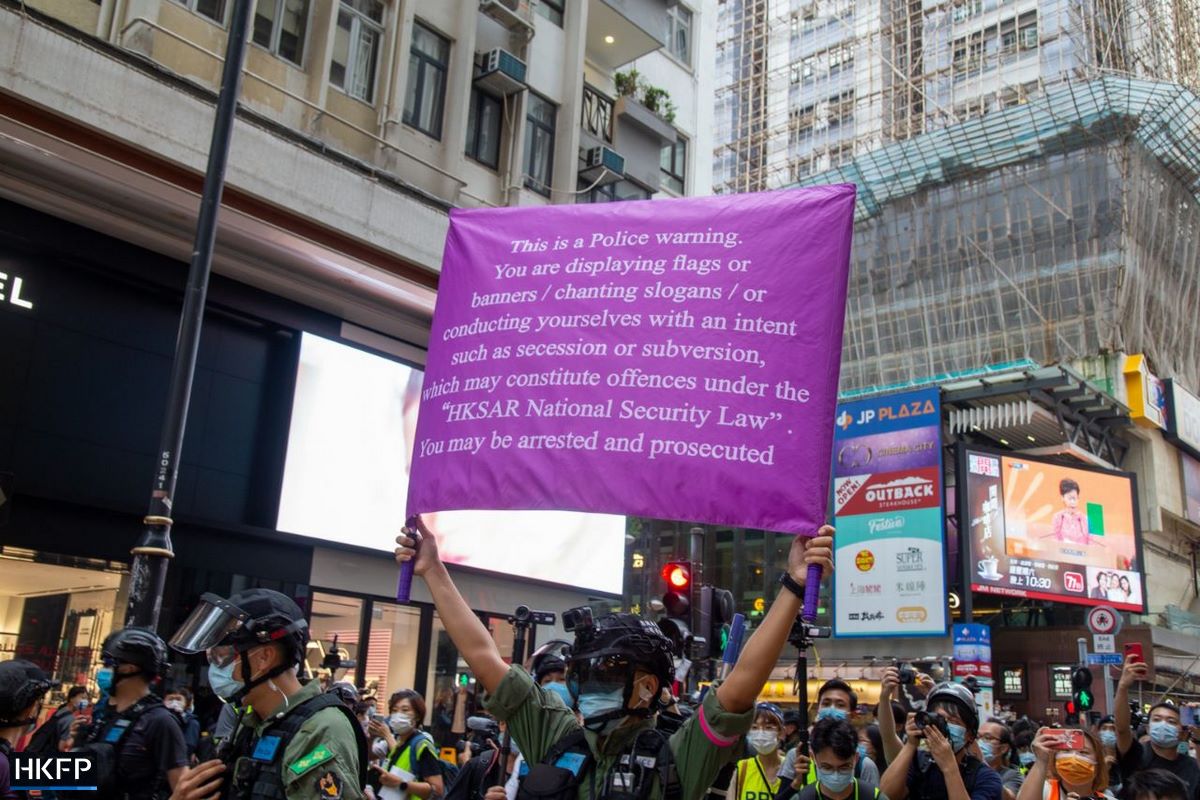Two bilateral agreements between Hong Kong and Russia that would allow the jurisdictions to cooperate in criminal investigations and transfer convicts are expected to be tabled to lawmakers this year, bringing them a step closer to enforcement.

Hong Kong security chief Chris Tang and Russian Minister of Justice Konstantin Chuychenko signed a mutual legal assistance agreement and a transfer of sentenced persons agreement via video conference last September. Neither has been enacted.
Ming Pao reported on Monday that the agreements would be brought to the Legislative Council this year.

HKFP has reached out to the Security Bureau for comment.
The mutual legal assistance agreement would enable Hong Kong and Russia to work together in areas such as identifying people, collecting evidence and executing requests for searches. The city currently has such active agreements with 21 countries, including Japan, Indonesia and Ukraine.
The transfer of sentenced persons agreement, which would allow convicts to serve time in their place of origin, would be the city’s 16th, joining pacts with countries such as the Philippines, India and the UK.
‘Political manipulation’
The September signing between Hong Kong and Russia came after the city halted its mutual legal assistance agreements with a number of Western countries in 2020, in response to their unilaterally suspending extradition treaties following Beijing’s passing of the national security law.

Between July and November 2020, nine countries – including the UK, US, Canada, Australia, Germany and the Netherlands – shelved their extradition agreements with the city. France, with whom Hong Kong had a signed extradition treaty that had not yet come into force, also halted proceedings.
A government news release in response to suspensions from Canada, Australia and the UK said the moves “smack[ed] of political manipulation and double standards,” adding that the three countries have their own legislation for safeguarding their national security and sovereignty.
Russia does not have an extradition agreement with Hong Kong.

The national security law was inserted by Beijing into Hong Kong’s mini-constitution in June 2020, bypassing the local legislature. It followed a year of pro-democracy protests and unrests that saw mass marches and clashes with police. Extradition was at the heart of the movement, which was sparked by a controversial law that would have allowed fugitives to be transferred to mainland China – where the legal system is criticised as opaque – to stand trial.
Scores of pro-democracy activists have been arrested, and civil society groups have folded, under the law. Authorities, however, say it has restored stability and peace to the city.
Support HKFP | Policies & Ethics | Error/typo? | Contact Us | Newsletter | Transparency & Annual Report | Apps
Help safeguard press freedom & keep HKFP free for all readers by supporting our team

LATEST FROM HKFP
HKFP has an impartial stance, transparent funding, and balanced coverage guided by an Ethics Code and Corrections Policy.
Support press freedom & help us surpass 1,000 monthly Patrons: 100% independent, governed by an ethics code & not-for-profit.










